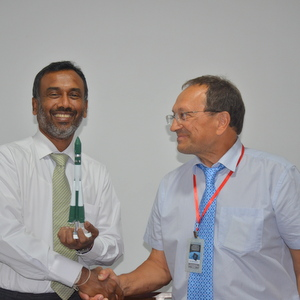Experts from Samara University participated in a discussion of the roadmap for development of the national space program of the Democratic Socialist Republic of Sri Lanka.
Samara University is one of the few universities in the world with its own fleet of spacecraft in low-Earth orbit.
In February of this year, the University’s achievements in this field were presented to the international community at the 53rd session of the Science-and-Technology Subcommittee of the United Nations Office for Outer Space Affairs. One of the outcomes of the event was the signing of a memorandum of understanding between Samara University and the Arthur C. Clark Institution for Modern Technologies, which the Sri Lankan Ministry of Science and Technology has tasked with developing the country’s national space program.
“At present, Sri Lanka is not pursuing any projects that feature space technologies. The Arthur Clark Institution has been given the daunting task of becoming the core of the country’s future space agency and formulating its national space program. The initial phase of the program envisions the creation of the first nano-class satellite and a system for training a specialized workforce. Thus, it’s a great honor for our university to be positioned right at the wellspring of this developing country’s first forays into space,” says the Head of the Intercollegiate Department for Space Research at Samara University, Professor Igor Belokonov.
In August, experts from Samara University led a ten-day training seminar in Sri Lanka on the development of Cubesat nano-satellites. The university delegation included professor Igor Belokonov, assistants Denis Avaryaskin and Efim Ustyugov (employees at the Intercollegiate Department for Space Research), Associate Professor at the Department for Laser and Biotechnology Systems Dmitri Kornilin, taking active part in the creation of nano-satellite software, and Assistant to the Provost for International Affairs, Sergei Chernikov.
“At the seminar, we gave lectures on nano-satellite technologies analagous to those offered in the spaceflight summer-school program at Samara University. We essentially conducted a short-term specialist training course, complete with the issuance of the respective certificates. The main goal of the seminar organizers was to shape a team for the development of a nano-satellite, so they wanted to know what all of the project-development procedures would entail, what kind of competencies the team members should have, and what the approximate financing volumes would be. We also consulted the Institution for Modern Technologies employees on the different phases involved in project implementation and the formulation of a roadmap for development of the country’s space industry. Discussions also touched on different scenarios for the special-purpose use of the future nano-satellite,” emphasizes Denis Avaryaskin.
Within the scope of the seminar, the Russian scientists demonstrated to their Sri Lankan colleagues the nano-satellite onboard systems developed at Samara University, and discussed options for further cooperation that take into consideration the specifics of sending nano-satellites into orbit. The visit also featured a meeting with the Russian Ambassador to Sri Lanka Alexander Karchava and the Sri Lankan Minister of Science and Technology, Susil Premajayantha. Interest was expressed in holding a two-month training course for a group of employees from the Arthur C. Clark Institution for Modern Technologies at Samara University by the end of this year. Professor Igor Belokonov was also invited to the Science and Technology Forum, which is scheduled to take place in Sri Lanka on 5-10 September, to lead a section devoted to the development of space technologies.
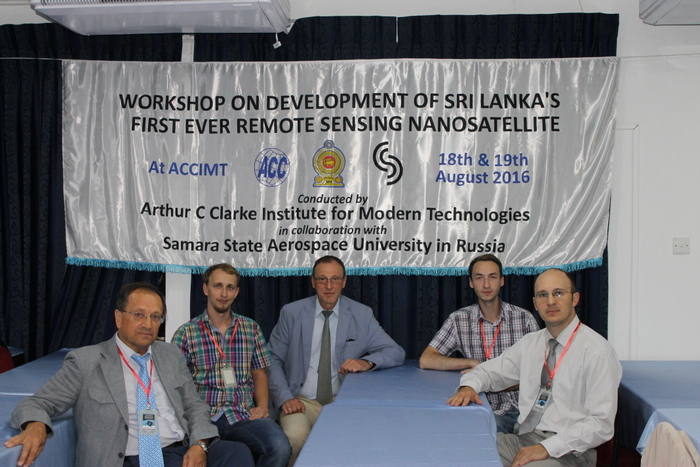
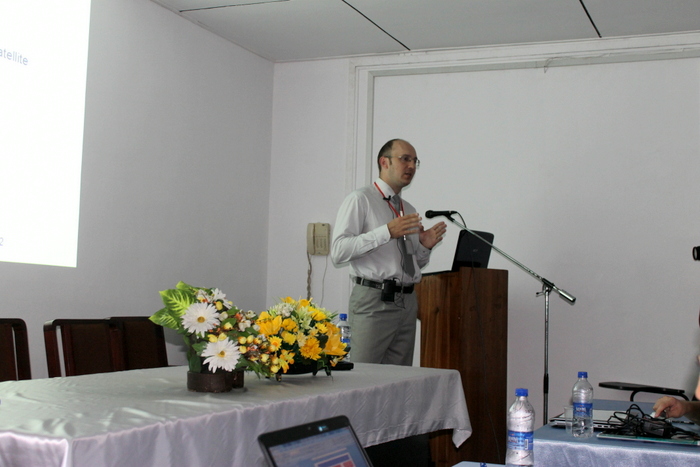
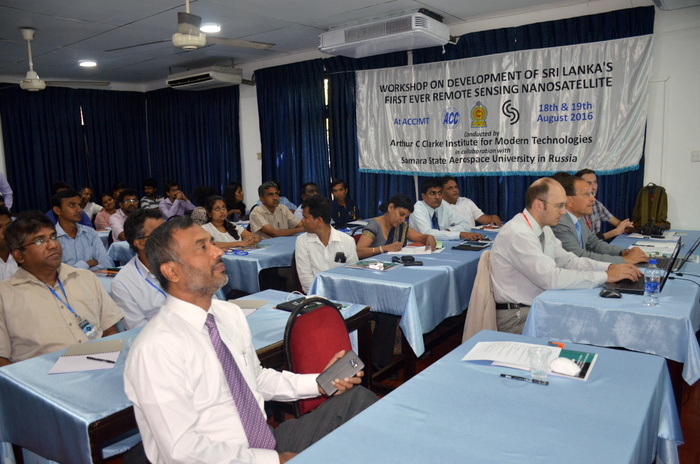
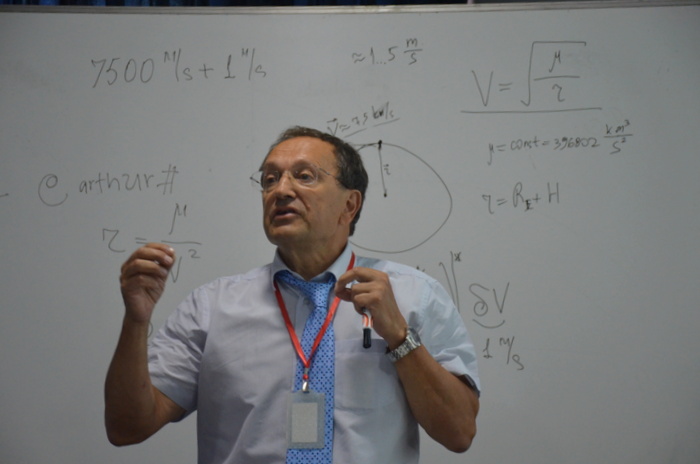
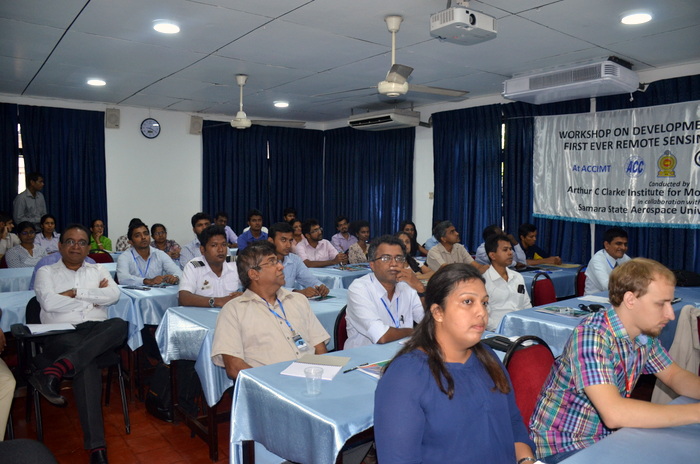
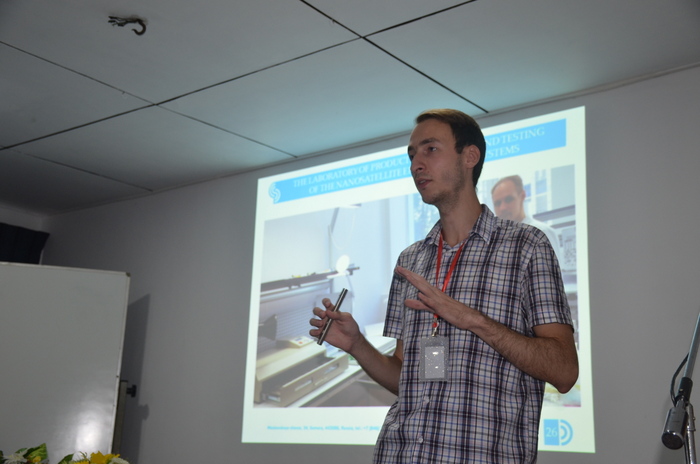
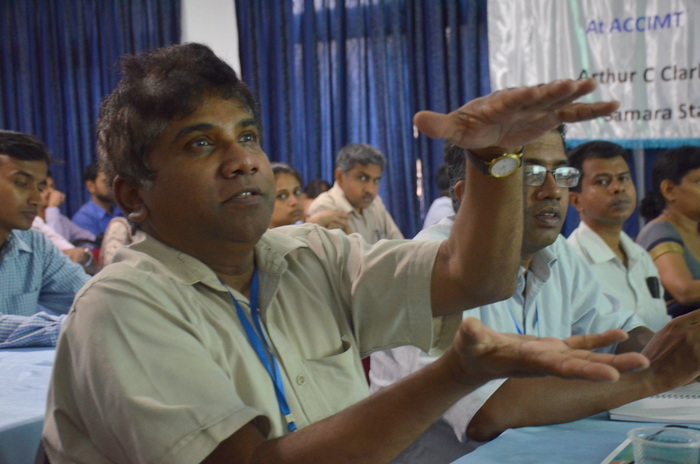











 RU
RU  EN
EN  CN
CN  ES
ES 